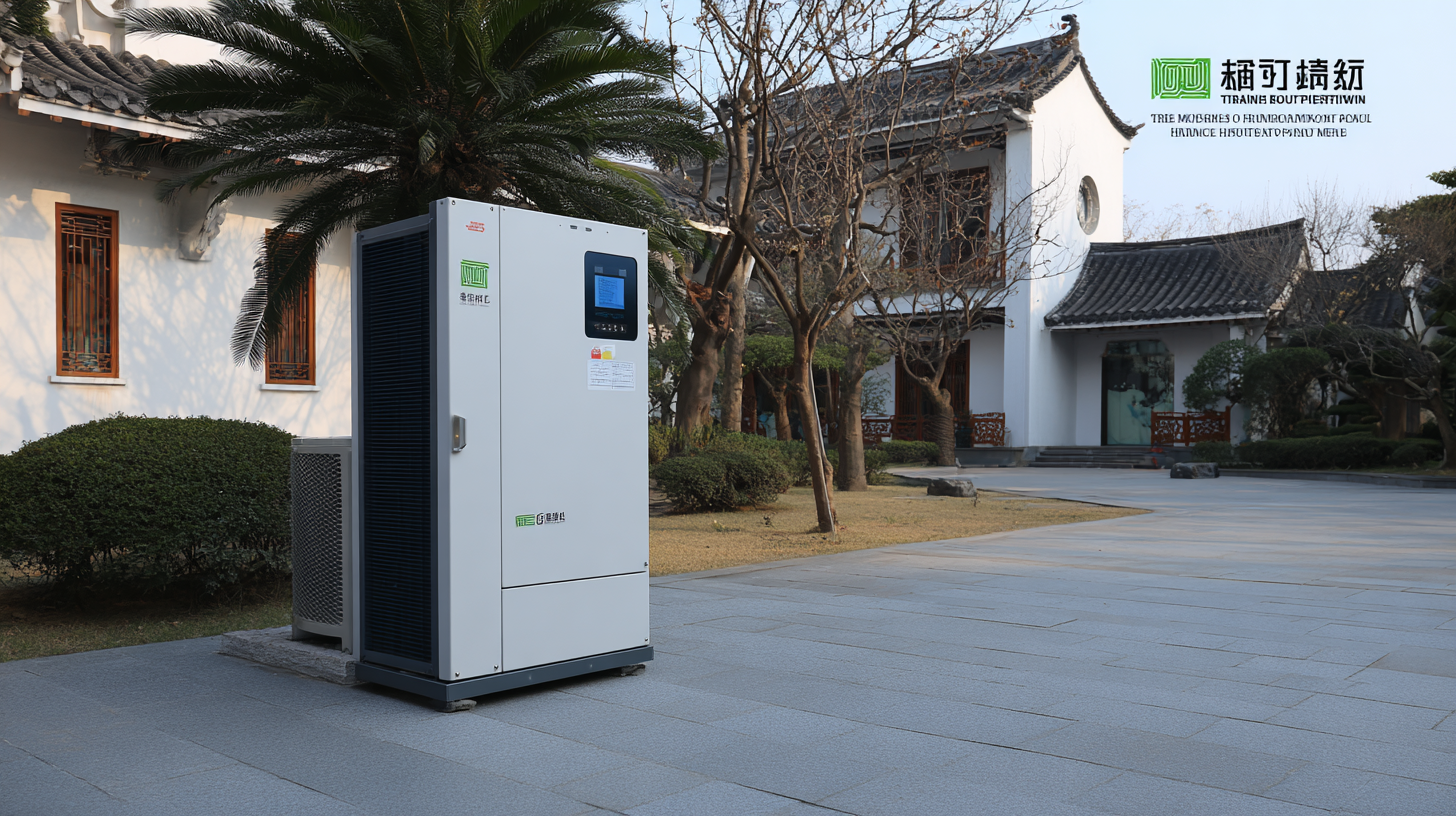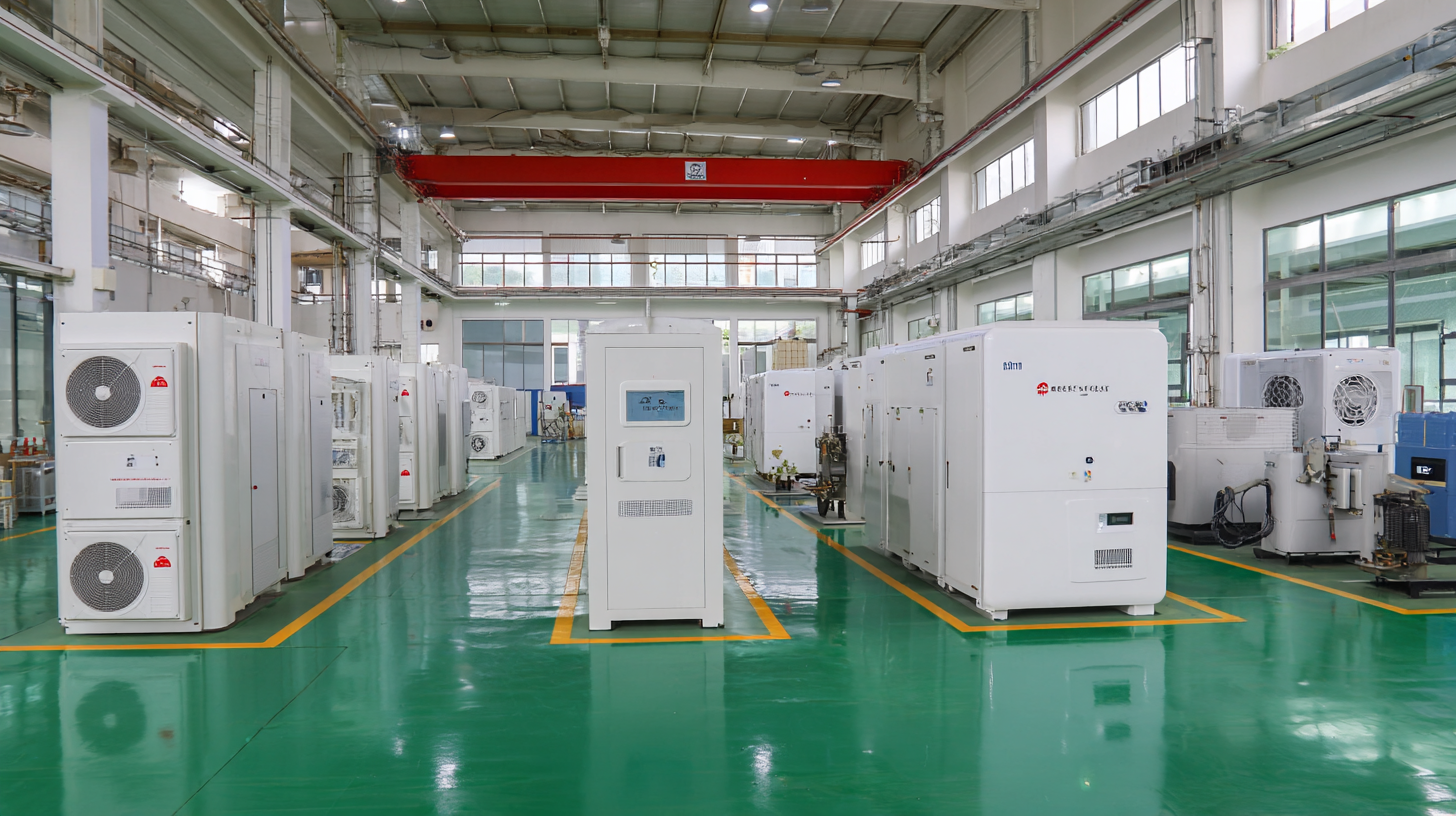


As the world intensifies its focus on sustainable energy solutions, Ground Source Heat Pumps (GSHPs) have emerged as a cornerstone technology for efficient heating and cooling systems. According to a report by the International Energy Agency, the global market for GSHPs is projected to reach USD 42 billion by 2025, driven by an increasing demand for energy-efficient systems and the rising awareness of reducing carbon footprints. China, as a leading manufacturer, plays a pivotal role in this transformation, delivering premium GSHP solutions that epitomize reliability and quality. With a commitment to innovation and excellence, Chinese manufacturers are setting new standards in the industry, ensuring that customers worldwide can trust in the consistent performance and durability of their products. This blog explores how these advanced systems are reshaping trust in the global market and establishing China as a powerhouse in sustainable energy production.

Ground source heat pumps (GSHPs) are increasingly recognized for their efficiency and sustainability, making them a pivotal choice in the growing geothermal energy market. As the industry is projected to expand from $6.6 billion in 2021 to $9.4 billion by 2027, understanding the key features of premium GSHPs becomes essential for homeowners and businesses alike. These systems utilize the earth’s stable temperature to provide both heating and cooling, ensuring minimal energy consumption and superior environmental benefits.
Premium models stand out due to their advanced technology, which enhances performance and reliability. Features such as intelligent control systems, high coefficient of performance (COP), and flexible installation options contribute to their efficiency. Additionally, they often come with superior build quality and extended warranties, critical for ensuring long-lasting operation. As energy prices continue to fluctuate, investing in a premium ground source heat pump becomes not only an environmentally conscious choice but also a financially astute decision for the future.

When choosing a ground source heat pump, assessing the manufacturer's reputation and industry experience is crucial. In the rapidly evolving landscape of renewable energy solutions, manufacturers that have demonstrated reliability, innovation, and customer satisfaction stand out. China's leading manufacturers have built a strong reputation through years of investment in research and development, enabling them to produce high-efficiency heat pumps that meet stringent international standards.
Industry experience further enhances a manufacturer’s credibility. Companies with decades of experience understand the nuances of installation and performance in diverse environments, which translates to a more durable and efficient product. They are often pioneers in adopting new technologies, leading the way in environmentally friendly initiatives. Prospective buyers should prioritize manufacturers with a proven track record of successful installations and positive customer feedback, ensuring that their investment is not only in a product but also in a trusted partnership for years to come.
In the rapidly evolving market for ground source heat pumps, ensuring certification and compliance standards is crucial for both suppliers and manufacturers. Premium ground source heat pumps from China’s leading manufacturers are setting benchmarks not just in efficiency and sustainability, but also in adhering to rigorous international regulations. Certifications such as ISO 9001 for quality management systems and ISO 14001 for environmental management are becoming indispensable in establishing trust among consumers and industry stakeholders. These certifications give buyers confidence in the product's performance and environmental impact.
Moreover, compliance with local and international safety standards is paramount. In regions where these heat pumps are deployed, manufacturers must navigate a complex landscape of regulations, from the CE marking in Europe to the Energy Star certification in North America. By meeting these diverse standards, Chinese manufacturers demonstrate their commitment to quality and safety, enhancing their global competitiveness. These efforts not only boost consumer confidence but also promote sustainable practices in the industry, paving the way for wider adoption of green technologies like ground source heat pumps.
This chart illustrates the compliance ratings of various components used in premium ground source heat pumps based on industry standards.
In today’s competitive HVAC market, customer support and after-sales service play a pivotal role in determining a company's reputation and success. According to a recent industry survey conducted by the Heat Pump Association, nearly 70% of customers cite high-quality support as a deciding factor when purchasing ground source heat pumps. This statistic underscores the critical need for manufacturers to invest not only in their product quality but also in robust customer service solutions.

Premium ground source heat pumps from leading Chinese manufacturers are increasingly recognized for their superior engineering and efficiency. However, the difference in customer support can vary significantly between companies. Reports indicate that brands with a dedicated after-sales helpline and extensive service networks are seen as more trustworthy. For instance, manufacturers that provide comprehensive training for technicians and responsive customer service teams often report customer satisfaction ratings exceeding 85%. This commitment to customer care not only enhances user experience but also fosters long-term loyalty, making it essential for manufacturers to prioritize these aspects in their business strategies.
When comparing pricing and value among different suppliers of premium ground source heat pumps, it’s essential to look beyond mere cost. According to a recent report by the International Renewable Energy Agency (IRENA), the upfront investment in ground source heat pumps can be offset by their high efficiency and long lifespan, which usually spans 20 to 25 years. This means that while one supplier may offer a lower initial price, their product may not deliver the same energy savings over time, potentially leading to higher long-term costs.
Tip: Always request detailed performance data from suppliers, including Seasonal Energy Efficiency Ratio (SEER) and Thermal Efficiency ratings. This information provides insight into the operational efficiency, helping to assess not just the purchase price but the overall value of the system throughout its lifecycle.
Additionally, warranty and service support are critical factors to evaluate. A significant report from the U.S. Department of Energy emphasizes that manufacturers offering extensive warranties and robust after-sales service can often indicate higher-quality products. This assurance can save consumers from unexpected costs due to repairs or replacements down the line.
Tip: Compare warranty terms carefully. Look for comprehensive coverage that includes both parts and labor, as this can greatly minimize future expenses and protect your investment.
